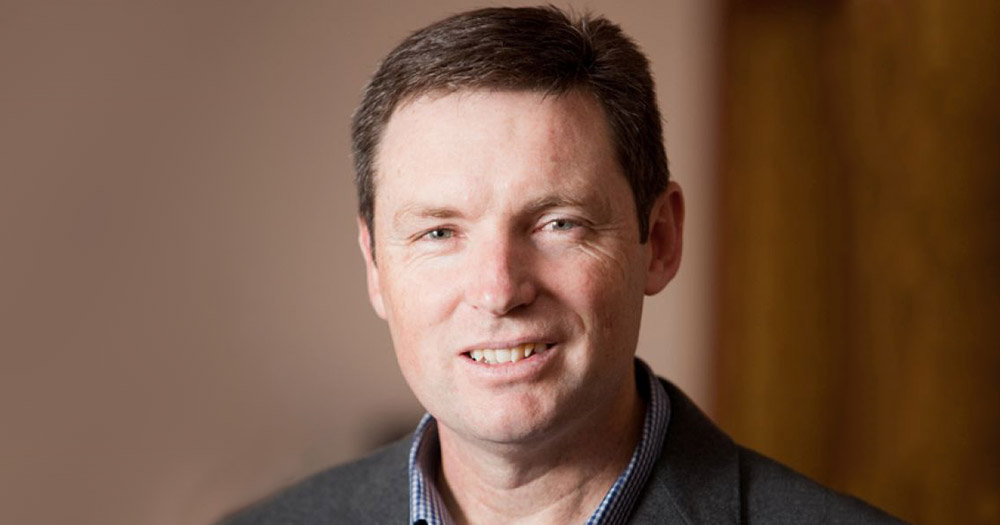The Australian Christian Lobby (ACL) Chief Lyle Shelton last week claimed that Ireland’s same-sex marriage referendum was ‘respectful’ and ‘uneventful’ prompting LGBT+ researcher Dr Sharon Dane to challenge his assertion.
According to Shelton, Ireland held “a respectful suicide-free peoples’ vote”, reports Out In Perth. He went on to suggest that US states held public votes on the same issue without any harmful consequences to LGBT+ people.
Dr Dane countered Shelton’s statement in an open letter to Shelton.
“I was one of the researchers in a landmark study (Dane, Short, & Healy, 2016) of LGBTI Irish people conducted last year,” Dr Dane said.
“It found that most Irish LGBTI people were upset, angry and anxious during the marriage equality referendum referendum campaign, and that younger LGBTI people and the children of same-sex couples were worst affected.”
Dr Gráinne Healy indicated that campaigners fighting for marriage equality in Ireland required counselling after receiving abusive comments from those who sided with the No Campaign.
Detrimental Effects
The study revealed that less than a quarter of LGBT+ people and their families would be happy to carry out a referendum again, reflecting the serious impact that the No Campaign had on their mental wellbeing.
Dr Dane also points out some of the US research which quantified the effect such votes had on LGBT+ people.
“The 2-wave (before and after) study by Hatzenbuehler et al. (2010) involving 34,000 people found a 36.6% increase in mood disorders, 248.2% increase in generalised anxiety disorder, a 41.9% increase in alcohol use disorders amongst same-sex attracted individuals who resided in states in which anti-marriage campaigns were run in the lead up to a public vote banning same-sex marriage.”
Dr Dane ends the open letter by confirming her belief that LGBT+ Australians would be affected similarly if such a vote were to be carried out in Australia.
Letter
Below is the letter Dr Dane sent to the ACL in full which highlights the negative impact that the No Campaign had on Irish and US LGBT+ people:
Dear Mr Shelton,
I was appalled to read you declare that Ireland had a “respectful” referendum on marriage equality and US states held “uneventful” public votes on the issue (Why the ‘winner’s circle’ doesn’t trust the public to win, 12.07.2017)
I was one of the researchers in a landmark study (Dane, Short, & Healy, 2016) of LGBTI Irish people conducted last year .
It found that most Irish LGBTI people were upset, angry and anxious during the marriage equality referendum campaign, and that younger LGBTI people and the children of same-sex couples were worst affected.
It also found that, if they could go back in time, only 23% of Irish LGBTI people and families in the survey would be happy to have a referendum again.
Research from the United States shows similar results.
The 2-wave (before and after) study by Hatzenbuehler et al. (2010) involving 34,000 people found a 36.6% increase in mood disorders, 248.2% increase in generalised anxiety disorder, a 41.9% increase in alcohol use disorders amongst same-sex attracted individuals who resided in states in which anti-marriage campaigns were run in the lead up to a public vote banning same-sex marriage.
I have every reason to believe the situation would be the same if Australia were to go down the path of a plebiscite on marriage equality.
Yours Sincerely,
Dr Sharon Dane
References:
Dane, S., Short, L., & Healy, G. (2016). Swimming with sharks: The negative social and psychological impacts of Ireland’s marriage equality referendum ‘NO’ campaign. School of Psychology Publications. The University of Queensland, Australia http://espace.library.uq.edu.au/view/UQ:408120
Hatzenbuehler, M. L., McLaughlin, K. A., Keyes, K. M., & Hasin, D. S. (2010). The impact of institutional discrimination on psychiatric disorders in lesbian, gay, and bisexual populations: A prospective study. American Journal of Public Health, 100, 452-459.
© 2017 GCN (Gay Community News). All rights reserved.
